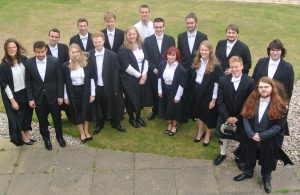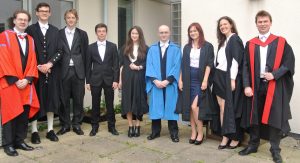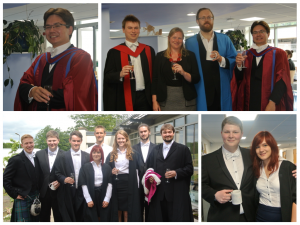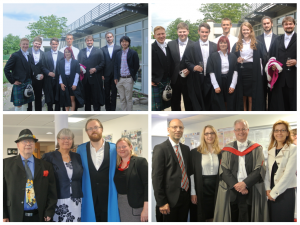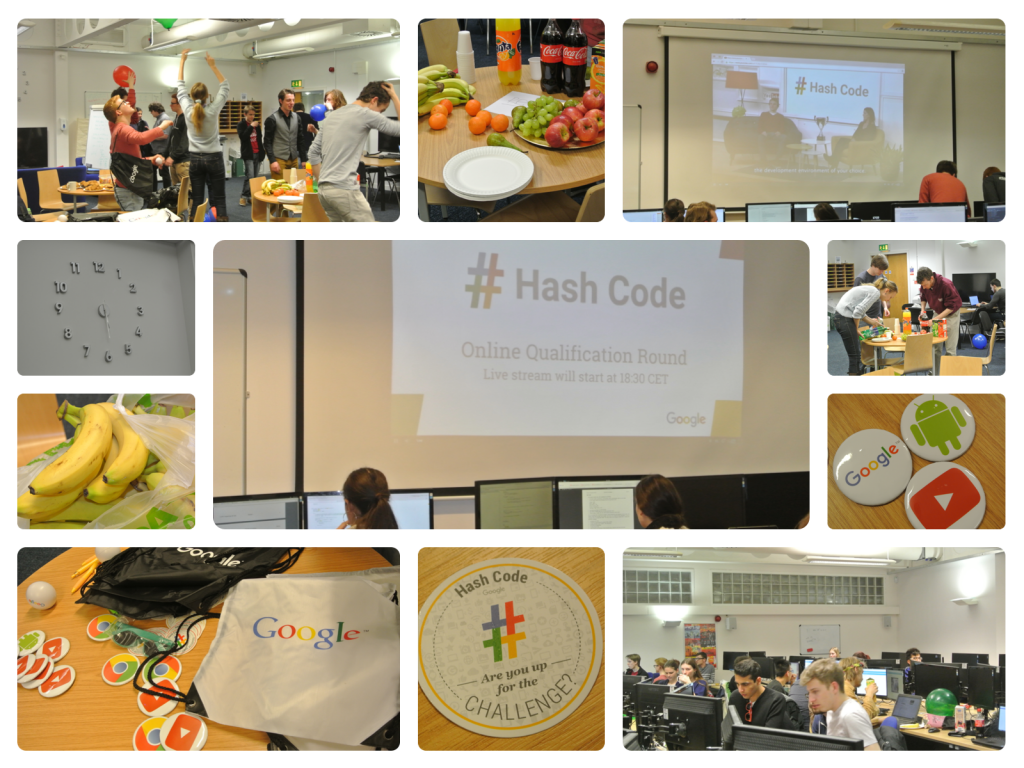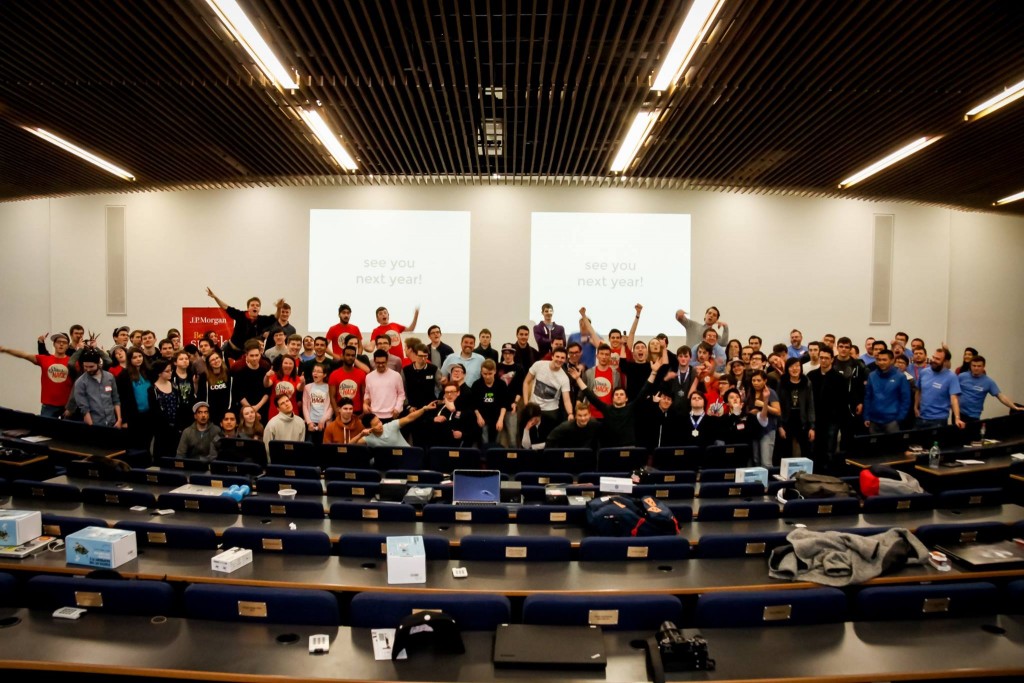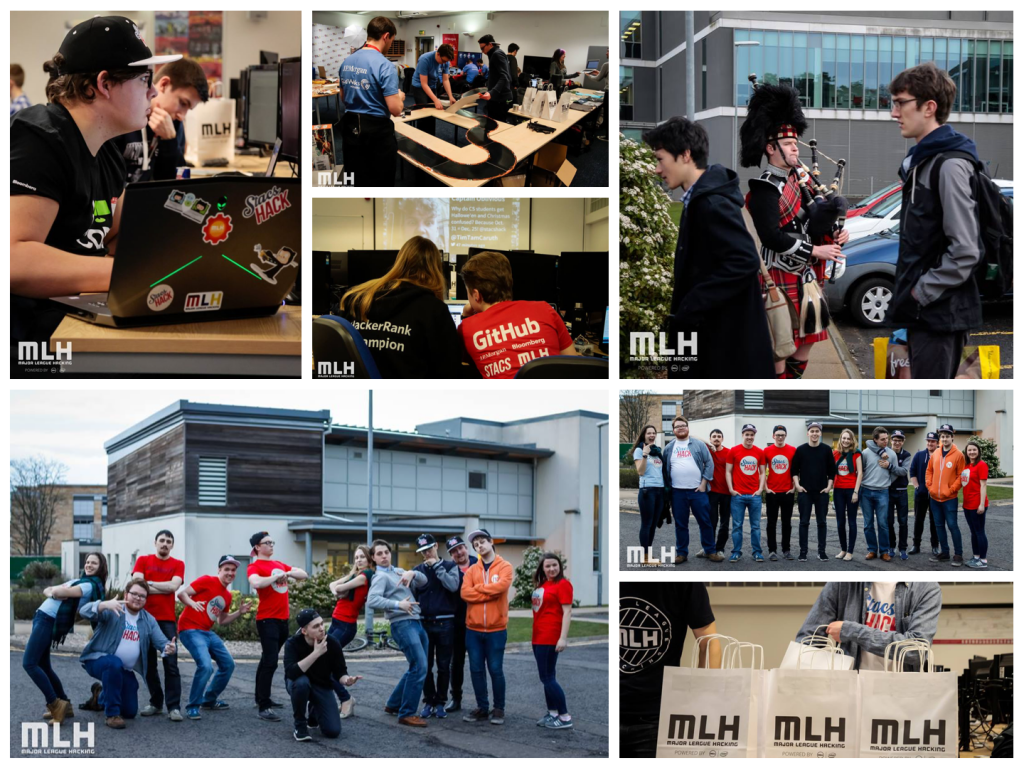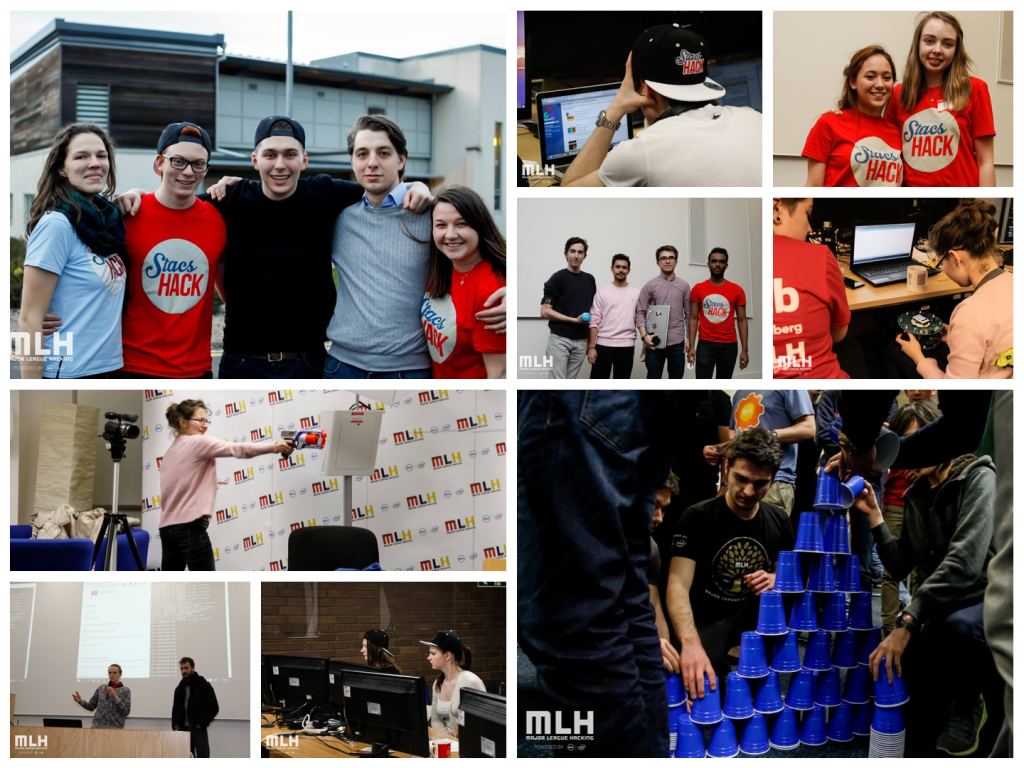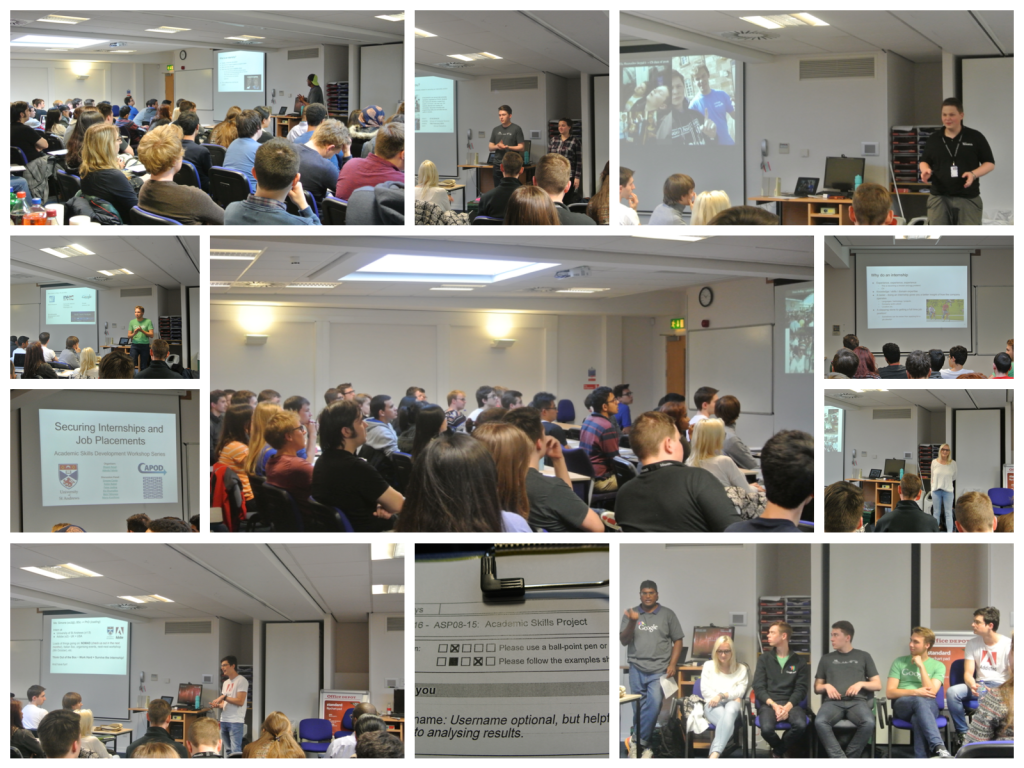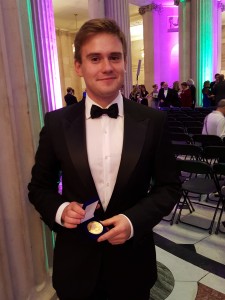Undergraduate
Computer Science: June Graduation Reception 2016
Congratulations to our Senior Honours Class of 2016, and our PhD students Dr Jan de Muijnck-Hughes, Dr Christopher Davies, Dr Jakub Dostal, Dr Marc Werfs, Dr Ditchaphong Phoomikiattisak, Dr Bruce Simpson and Dr Ward Jaradat who graduated yesterday. Students were invited to a reception in the school to celebrate their achievement with staff, friends and family.
Saad Attieh, one of our talented SH students was awarded this year’s Principal’s Medal, which recognises exceptional endeavour and achievement during a student’s time at St Andrews. Read more about the medal and his journey in the University News.
Our graduates move on to a wide variety of interesting and challenging employment and further study opportunities, and we wish them all well with their future careers.
Watch some video, win a Netflix or Amazon voucher
Tell us what you think of our videos and you could win a £20 Netflix or Amazon voucher!
You will be asked to watch and assess the video quality of four 1-minute online video clips, as well as complete a short questionnaire related to your regular video usage and your energy-saving awareness and preferences. Your participation should take around 20 to 30 minutes.
Optionally, you will be entered into a prize draw for a £20 Netflix or Amazon voucher.
You must be 18 years or over.
Please contact Oche Ejembi <ooe@st-andrews.ac.uk>
UTREC approval code: CS12016
Contact Details
Researcher: Oche Ejembi
email: ooe@st-andrews.ac.uk
Supervisor: Prof. Saleem Bhatti
email: saleem@st-andrews.ac.uk
Distinguished Lecture Series: Reminder of next event – ‘CS for All’ by President Maria Klawe
Reminder that President Maria Klawe will be speaking at our Distinguished Lecture Series on March 31st 2016 in St Andrews.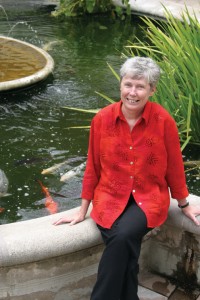
During this event Maria will discuss the challenges in CS for all, including CS education in K-12, computing for all in undergraduate education, and CS research aimed at people with accessibility challenges and creating educational and research opportunities around the applications of computational technologies in almost every discipline and economic sector.
Programme of events:
- 09:00 – 09:30
- Introduction: By Professor Aaron Quigley
- 09:30 – 10:30
- Lecture 1: Computing for all in K-12 education
- 10:30 – 11:00
- Coffee Break: Refreshments served in foyer
- 11:00 – 12:00
- Lecture 2: Computing for all in undergraduate education
- 12:00 – 14:00
- Lunch Break: Free time
- 14:00 – 15:00
- Lecture 3: Computing for all in research
- 15:00 – 15:30
- Q & A: Open forum in the auditorium
- 15:30 – 16:00
- Informal time with Speaker: In the foyer
Katerina Saranti and Tatiana Matejovicova: Google STEP Internships
Congratulations to second year students Katerina Saranti and Tatiana Matejovicova, both have successfully secured Google STEP Internships with Google, in Zurich. A fantastic achievement given the highly sought after summer engineering projects and the competitive process involved.
Katerina had originally applied for a Google Anita Borg scholarship last year. She had intended Interning at a natural speech recognition company, before being contacted by a student development specialist from Google who encouraged her to apply for a STEP internship.
Katerina shared some of her thoughts on the interview process.
“After the Christmas holidays, a Student Development Specialist at Google emailed me asking me if I would be interested in applying for a STEP internship as my profile from the Anita Borg application seemed a good fit. It took me by surprise but I was thrilled of course and I spent the next few weeks preparing for the technical interviews.
I feel that all CS modules helped me for the interviews, but I found the most relevant module to be CS2001 as it focuses on data structures which are especially important for the interviews. Also crucial to my preparation was solving lots of coding problems by hand, without using an IDE, since during the interview I had to write out everything myself, without the help of auto-complete or the compiler’s complaints about my errors.
I had two technical interviews, I thought my first one went OK and I managed fairly easily to do the coding that I was asked but I was not quite sure about the second. The feedback took about two weeks to come out and after that, things went on rather quickly; a host matching interview was arranged for a project in Zurich and in a matter of hours I received confirmation that I was selected. The big bonus is that my friend and classmate Tatiana was also selected for the exact same project and I can’t think of a better outcome than us working side by side! Special thanks to the careers office who helped me with my CV which was necessary for the scholarship application.”
Thanks to Silvia and Katerina for sharing their experience in an inclusive and informative way, and in doing so encouraging other students to seek out internships.
We have supported a number of student led, or internship focused events in the last year including the Academic Skills Project and look forward to hearing more about the 2016 STEP internships at future events.
Computer Science hosts StacsHack and Google HashCode
The School hosted another hugely successful StacsHack last month. We congratulate the St Andrews Computing Society (Stacs) for running a fantastic event. Earlier in February they also coordinated and participated in Google HashCode, a team-based programming competition aimed at solving real-life engineering problems selected by Google.
Hackathons allow students with a range of talents and aptitudes to form groups and create innovative projects in 24hrs. It’s clear from the many photos that great fun was had at both events.
Gorgeous graphs, mood hub, SpeechFrenzy, Social face, Fresh: freshers app, Myo Athletics, pinboard and FarmScript are just some of the projects demos presented during StacsHack. Why not join them for StacsHack3 in 2017.
Thanks to Stacs for continuing to represent the School of Computer Science in such an upbeat and inclusive way.
Sponsors: GitHub, J.P.Morgan,Bloomberg, Codeplay and Startups hackcampus and Codio.
Hardware Lab Partners: Arduino, nest, intel, leap motion, muse, oculus, particle, pebble, and Myo.
StacsHack Photos by Ryo Yanagida, courtesy of Major League Hacking.
Google Hash Code Photos courtesy of Computer Science.
WWWho do you trust?
Who do you trust online?
Come and help us to work out how you decide to trust web sites!
You will need to complete a computer-based survey (in the Physics Library or in the School of Computer Science) in which you will rate how you perceive the trustworthiness of several websites.
Total participation time is less than 15 minutes.
At the end of the survey you can be entered into a prize draw for one of three Amazon or iTunes vouchers.
Volunteers have to be at least 18 years of age.
After the study, all volunteers will be sent a briefing on how they can improve their online security.
Please email John (jcbh@st-andrews.ac.uk) if you wish to take part or have any further questions.
Contact details:
Researcher: John Heenan
E-mail: jcbh@st-andrews.ac.uk
Supervisor: Professor Saleem Bhatti
E-mail: saleem@st-andrews.ac.uk
UTREC approval code: CS11909
Silvia Nepšinská: Google STEP Internship
Congratulations to first year student Silvia Nepšinská, who has successfully secured a STEP Internship with Google in Zurich. Her success after one semester in computer science is exceptional, given the highly sought after places and competitive process.
Silvia first heard about Google STEP internships from a friend and applied to get real-life programming experience with a company renowned for its creative and varied office environment. She explained her motivation for applying and shared some of her thoughts on the process.
“Thanks to friends who already had internships, and also to the academic skills project talks last semester, I knew what to expect, how the interviews will probably look like. I participated in an algorithmic competition during high school, so I was familiar with the type of questions they would ask, but I have never had a programming interview before, never had to talk while coding, so that was completely new to me. I was really glad when Shyam offered to do a mock interview for me so I could try it.
I had 2 interviews, the first went quite well, but I didn’t know what to think about the second, because the interviewer didn’t talk very much, especially when I got stuck at one point, she mostly waited for me to resolve everything, so I had no idea what she was thinking, which was little scary. But apparently it went well, and they called me just few days later to tell me that I passed the interviews.
But that still wasn’t the end, because in next stage, teams select the successful interview candidates for their projects. It is still possible to get through interviews and not get an internship, because no suitable team/project was found. Last week I received a call from a team in Zurich. We discussed the potential project I would be doing with them and I could ask them whatever I wanted about it, or about the Zurich office in general.
The academic skills project Internship talks were great, because they gave me the information about the process. Also, we had a talk by St Andrews alumni James Smith from Google, and afterwards I signed up for their notifications mailing list. A Google University Programs employee located me from the list, and she talked to me about specifics of STEP internship and future interviews. She was also in contact with my recruiter, so I felt like I had two recruiters, which was really nice.”
The School is keen to highlight student achievement and showcase the talent, originality and creativity fostered here in computer science. Thanks to Silvia for sharing her experience and in doing so, encouraging other students to seek out future internships. We have supported a number of student led, or internship focused events in the last year including the Academic Skills Project, Lost in Translation: Academia to Industry and This is a Google Talk.
Spot the difference?
Do you have a discerning eye for video? If so, we need your help as a volunteer in our study!
Volunteers will be asked to watch 7 video clips of 10 seconds each. Each clip will be viewed 3 times, and then again at a different distance. After each video clip, you will choose which clip (if any) you perceived to have different quality and why. All video clips are suitable for viewing by people of 12 years and older. Volunteers have to be at least 18 years of age.
Please email Bence (bs44@st-andrews.ac.uk) if you wish to take part or have any further questions.
Contact details:
Researcher: Bence Szabo
E-mail: bs44@st-andrews.ac.uk
Supervisor: Professor Saleem Bhatti
E-mail: saleem@st-andrews.ac.uk
UTREC approval code: CS11878



